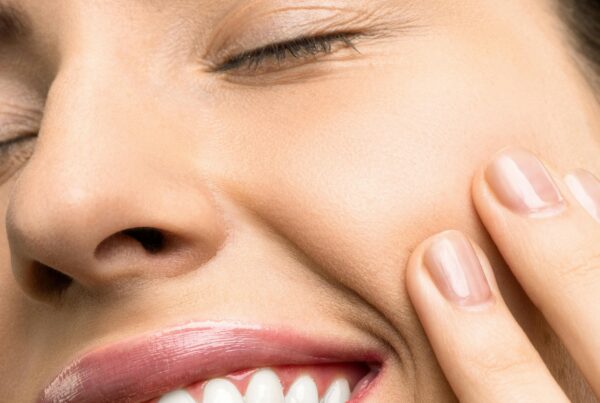Stressed skin is a growing problem. With individuals exposed to stress daily, from work, the news or the constant worry of whether we’re going to get ill, anxiety levels have grown, and it appears the effects are reflected on the face.
To compound the issue, with the rapid increase in the use of video conferencing, many are developing negative perceptions related to staring back at themselves for prolonged periods, with unflattering angles and harsh shadows. This phenomenon has been coined “Zoom dysmorphia”, and has contributed to an increased awareness of aging skin.
The brain–skin connection
Dermatologists are only too aware of the significant role that psychosocial stress plays in the exacerbation of skin disease, and it’s often the first precipitant that patients mention. This raises the question: have you ever wondered how stress can affect the skin so directly?
Medical literature recognizes the concept of the “brain–skin axis”. This is used to describe the interaction between the nervous and immune systems and the skin. Stress impacts the body in many ways, but the effects are most noticeable on the skin, since it is our body’s largest organ.
Stress hormones

Stress is perceived by the brain, which then sends signals to the body to release stress hormones such as corticotropin-releasing hormones, glucocorticoids, and epinephrine. Our skin is a target organ for these hormones, which modulate skin blood flow, as well as immune and inflammatory response. Adding to this, the skin itself is able to directly produce these chemicals, which further drives the dysregulation of the skin’s immune system.
In this way, stress hormones can trigger existing conditions to flare up, particularly inflammatory skin conditions such as atopic eczema, psoriasis, acne, and rosacea. Recent studies indicate that stress also has an impact on skin barrier function, which means higher water loss from the skin and ultimately drier skin.
Stressed skin aging
The underlying mechanisms whereby stress may play a role in skin aging are still somewhat elusive; however, stress is known to contribute to a pro-inflammatory state, which in turn affects the integrity of collagen through glucocorticoid-mediated processes, which alter its synthesis and breakdown. Collagen is a protein that keeps the skin tight and firm. This means that when your skin loses collagen, you can expect more fine lines, wrinkles, and loss of elasticity.
Skin health
While removing stress from modern-day life is almost impossible, the importance of managing and reducing the stress in our lives cannot be underestimated. This is due to the positive effects on our overall health, including our skin health. Mindfulness, meditation-based interventions have been shown in studies to be positively influential in maintaining good control of psoriasis in patients, and various stress-management techniques have been under research in terms of their potential incorporation into dermatological treatment regimens.
Taking all the above into consideration now is the time to prioritize healthy skincare. Focus on lifestyle habits that can assist in preventing premature skin aging, such as protecting your skin from harmful UV rays, improving sleep, and avoiding smoking. As stress can make the skin more permeable and reactive, the use of moisturizers to enhance the skin barrier function is recommended.
The bottom line
Stressed skin is a real issue that will require more attention. We can anticipate that further understanding of the brain–skin axis will encourage a more holistic management approach to stress-responsive skin disease, as well as skin aging, in the future.



![women [longevity live]](https://longevitylive.com/wp-content/uploads/2020/01/photo-of-women-walking-down-the-street-1116984-100x100.jpg)










